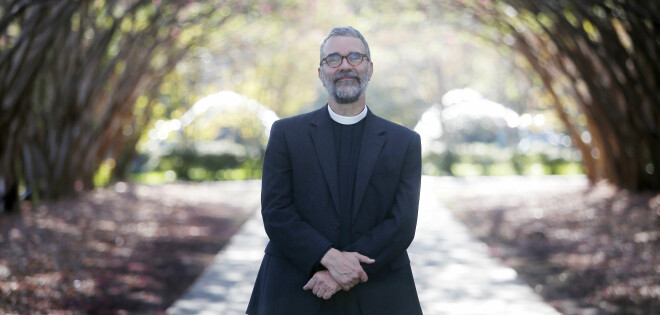Being Patient

The new technology at its worst offers Too Much Information in too many ways. On Facebook we learn what people ate for breakfast; a first-rate blog recently had a short jag in which older male participants shared about their hernias. From such things abstract theology is a relief! Into the same category falls undergoing a (routine) medical test, and I mention it only because of what it underscores: passivity. Go to the doctor, have your vitals taken, get wheeled down the hall, where they make you woozy with a quick injection: in the kindest of ways, we are in the medical world one on which things are done. By our agreement to be sure, agency is theirs, not ours. And we chafe at this, not least because we live in an individualist and activist American society. Passivity is good for us, but then, so is a root canal – it raises, in small cases and large, questions about human personhood.
When I was in seminary I was given an excellent little book written by Anglican priest, W.H.Vanstone, titled The Stature of Waiting. He reflects on mundane examples of passivity, of being-subject-to, and relates it to words such as ‘passion/passive/patient’ and ‘suffer’ (both in the sense of feeling pain and undergoing something). Most of all he argues that our dignity, our ‘stature,’ is most revealed in what we undergo, and toward what or whom we endure life.
I believe that this sense of our humanity found in ‘patience’ in its full sense has a theological dimension as well. Our Lord is never more active and powerful, we believe, than when he submits to our condition and undergoes His death, that proves saving. Likewise, we receive that news, and that salvation, and in no way enact it. This is hard to assimilate, and those whose lives are more disabled and undergone are important witnesses to the whole Body about the nature of that salvation. As theologians, likewise, we receive the tradition of faith, and do not create it, as the modern fallacy would have it. This too is hard for us to take in. An obvious example is preaching, where we are enjoined to seek an illuminating example or winsome appeal, but are not meant, first of all, to be original - as we receive, so we pass on. (A good account of this way of thinking of theology may be found in Reinhard Huetter’s Suffering Divine Things.)
All this is a touch ironic, since a bishop easily, and in many ways rightly, encourages energy, new efforts and engagement. For just this reason, in the season when we wait, and when we will soon hear of a family displaced, fleeing, surprised by a birth seemingly imposed, watching the suffering of the innocent, we do well to recall our spiritual stance of receiving, closer as it is to our true nature.
Peace
+GRS



